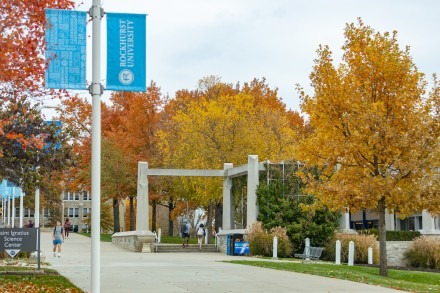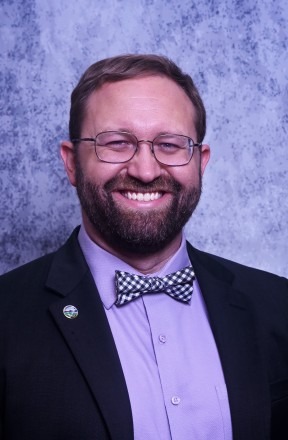OT Student Shares Love of the Game for Capstone

For many years, lacrosse was life for Dominic Diaz.
Diaz, who is about to graduate with his Occupational Therapy Doctorate, knows the history of the sport, its regional variations, and the strategy behind the game itself. He played at the collegiate level and coached at all levels up to high school.
But this year, he tackled a tough challenge within the game — how to adapt this fast-paced, contact-centered game for a new audience of people who are part of Exceptional Humans. The Kansas City-based nonprofit serves those with intellectual and developmental disabilities, offering both opportunities for self-advocacy and self-determination and life and job skills. Diaz said he knew he would have some work to do, so he dove back into lacrosse, this time to find some guidance on how to make the game approachable for this population.
“I found Scott Godfrey from Lacrossing Barriers my first week of doing research,” he said. “He said when he first started, he thought he was over-coaching, trying to teach the specific skills. But that doesn’t work for everybody. I’ll explain things when we do our activities, but as long as they’re participating, that’s all that matters to me.”
That research was part of Diaz’s capstone course for the Occupational Therapy Doctorate degree, in which students are asked to design a project that involves both community engagement as well as data gathering and analysis after its completion.
Diaz said the sport of lacrosse — with the contact removed — is well suited for occupational therapy. Diaz developed games and activities that ranged from playground classics such as sharks and minnows to simplified lacrosse drills that the participants played over the course of about a month of weekly sessions at the Don Bosco Center in Kansas City’s Historic Northeast.
In that short time span, he said he saw many of the participants refine their stick-handling skills (tool using), catching (coordination and tracking), and sense of camaraderie. In addition to showing that lacrosse was a good occupational therapy for this population, Diaz said the experience provided insight into working with individuals with varying needs.
“There are some folks who don’t talk at all, some who talk a lot, some who picked it up right away, and some for whom this was the first week they were able to catch,” Diaz said. “The OT side of it that I really enjoyed was figuring out how I grade this up or down to make everyone successful and meet them where they are?”
Judging from the reaction of the participants and their caregivers, the program was a success, and Diaz said he will be leaving Exceptional Humans with documentation they can use or adapt for future programs. Beyond the research, Diaz said he learned a lot about communication and how to design therapies that fit a range of needs. He also loved to be able build relationships with the individuals in Exceptional Humans through the sport that has given him so much.
“I credit a lot of my growth and the opportunities I’ve had to lacrosse,” he said. “Two of the recommendation letters I received to get into this program came from coaches who taught me a lot. To be able to do this — get more people involved and to share this thing I love with these folks — it’s really been super-rewarding.”



